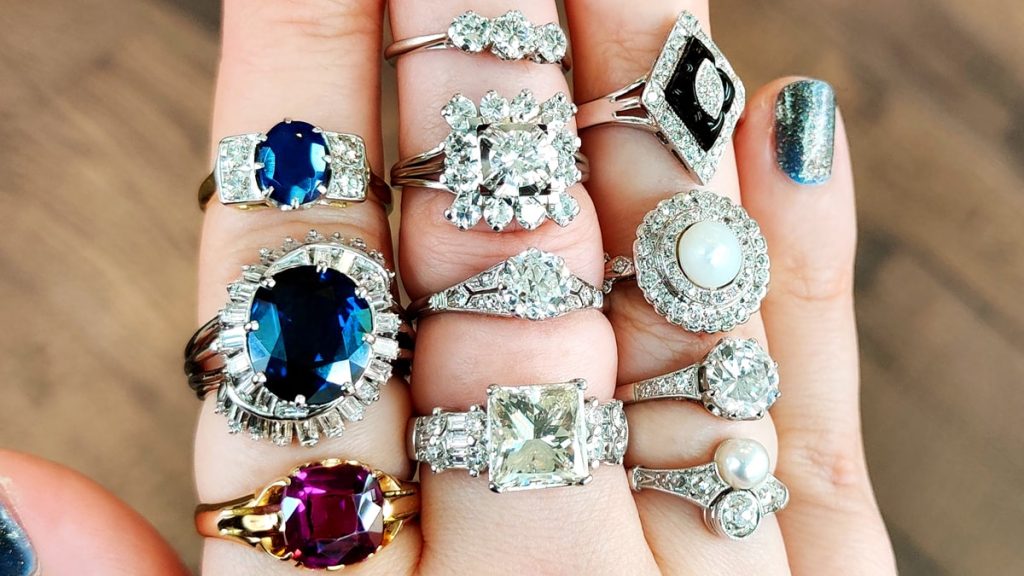
Introduction
In a world where conscious consumerism is on the rise, ethical engagement rings have emerged as a symbol of love and sustainability. These rings not only signify a commitment to a lifelong partnership but also reflect values of social responsibility and environmental consciousness. Let’s delve into the world of ethical engagement rings and discover why they’re becoming increasingly popular among couples today.
Why Choose Ethical Rings?
Ethical and Environmental Benefits
Ethical engagement rings are crafted using materials sourced through responsible and sustainable practices. By opting for these rings, couples can ensure that their purchase does not contribute to human rights abuses, environmental degradation, or conflict financing, which are often associated with traditional diamond mining and jewelry production.
Support for Ethical Practices
Choosing ethical rings supports companies and artisans who prioritize fair labor practices, safe working conditions, and equitable wages. By aligning with ethical brands, couples can actively contribute to positive change within the jewelry industry and promote transparency and accountability throughout the supply chain.
Sourcing Ethical Diamonds
Challenges of Traditional Diamond Mining
Traditional diamond mining has long been associated with environmental destruction, human rights violations, and funding conflicts in diamond-rich regions. The process often involves harmful practices such as land disruption, water pollution, and exploitation of local communities.
Ethical Alternatives
However, ethical alternatives to traditional diamond mining have emerged in recent years. These include lab-grown diamonds, which are chemically identical to natural diamonds but are produced in controlled laboratory environments, reducing the environmental impact and ethical concerns associated with mining.
Certifications and Standards
Importance of Certification
When purchasing an ethical engagement ring, it’s essential to look for certifications and standards that verify the ethical and sustainable practices of the manufacturer. Certifications such as the Kimberley Process Certification Scheme (KPCS) ensure that diamonds are sourced ethically and do not finance conflict.
Beyond Diamonds
In addition to diamonds, other gemstones used in engagement rings should also adhere to ethical standards. Look for certifications such as the Fair Trade Certified™ label, which guarantees that gemstones are sourced responsibly and that miners receive fair wages and work in safe conditions.
Eco-Friendly Materials
Sustainable Metal Options
In addition to ethically sourced gemstones, the metal used in engagement ring settings can also have environmental implications. Opt for metals such as recycled gold or platinum, which reduce the demand for newly mined materials and minimize the environmental footprint of the ring.
Recycled Diamonds and Gemstones
Another eco-friendly option is to choose rings made from recycled diamonds or gemstones. These stones are repurposed from existing jewelry or industrial sources, reducing the need for new mining and promoting a circular economy within the jewelry industry.
Conflict-Free Gemstones
Ensuring Ethical Sourcing
Ethical engagement rings prioritize gemstones that are sourced ethically and responsibly. By choosing conflict-free gemstones, couples can ensure that their purchase does not contribute to armed conflict, human rights abuses, or environmental degradation in mining regions.
Transparency and Traceability
Ethical jewelers provide transparency and traceability throughout the supply chain, allowing customers to trace the origins of their gemstones and verify that they have been sourced ethically. This transparency fosters trust and accountability within the jewelry industry.
Artisan Craftsmanship
Handcrafted Excellence
One of the distinguishing features of ethical engagement rings is the emphasis on artisanal craftsmanship. Unlike mass-produced rings, ethical rings are often handcrafted skilled artisans who take pride in their workmanship and attention to detail.
Unique and Personalized Designs
Artisan-crafted rings offer a level of uniqueness and personalization that mass-produced rings cannot match. Couples can collaborate with artisans to create custom designs that reflect their individual style, preferences, and love story, resulting in a truly one-of-a-kind piece.
Fair Trade Practices
Empowering Communities
Fair trade practices ensure that artisans and miners receive fair wages and work in safe conditions. By supporting fair trade jewelry brands, couples can empower communities around the world and promote economic development and social justice within the jewelry industry.
Social and Environmental Impact
Fair trade certification goes beyond economic considerations and also addresses social and environmental issues. Fair trade jewelry brands prioritize sustainable practices, community development, and environmental stewardship, ensuring a positive impact on both people and the planet.
Customization Options
Tailored to Your Preferences
Ethical engagement rings offer a wide range of customization options, allowing couples to create a ring that is truly unique and meaningful to them. From selecting the perfect gemstone to choosing the ideal setting and metal, customization ensures that every aspect of the ring reflects the couple’s individual style and love story.
Collaborative Design Process
Many ethical jewelers offer a collaborative design process where couples can work closely with designers and artisans to bring their vision to life. This collaborative approach allows for open communication, creative input, lab made diamonds, and the opportunity to create a ring that surpasses expectations.
Price Considerations
Understanding the Cost
While ethical engagement rings may come with a higher price tag compared to mass-produced alternatives, it’s essential to understand the value behind the price. Ethical rings are crafted using responsibly sourced materials, artisanal craftsmanship, and fair labor practices, which contribute to their higher cost but also to their ethical and environmental integrity.
Long-Term Investment
Viewing an ethical engagement ring as a long-term investment rather than a one-time purchase can help justify the higher cost. These rings are not only symbols of love and commitment but also tangible reminders of the couple’s values and dedication to making a positive impact in the world.
Popular Designs and Trends
Timeless Elegance
Ethical engagement rings encompass a wide range of designs, from classic solitaires to intricate vintage-inspired settings. Timeless designs such as the round brilliant cut diamond and the simple solitaire setting remain perennial favorites among couples seeking understated elegance and sophistication.
Nature-Inspired Elements
Nature-inspired designs featuring organic shapes, floral motifs, and delicate details are increasingly popular in ethical engagement rings. These designs celebrate the beauty of the natural world and evoke a sense of connections.


